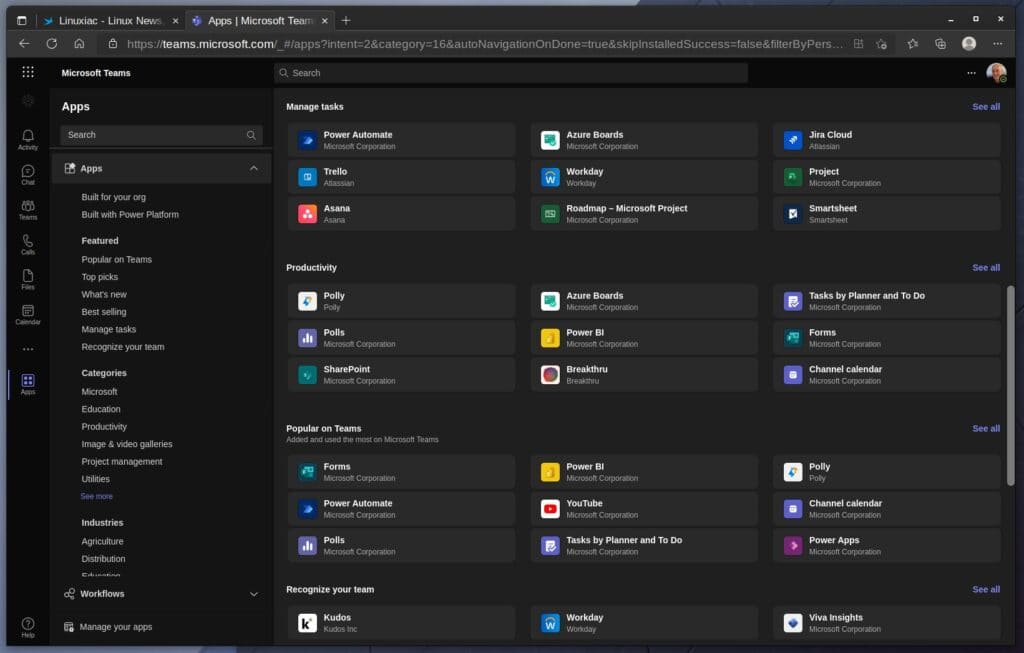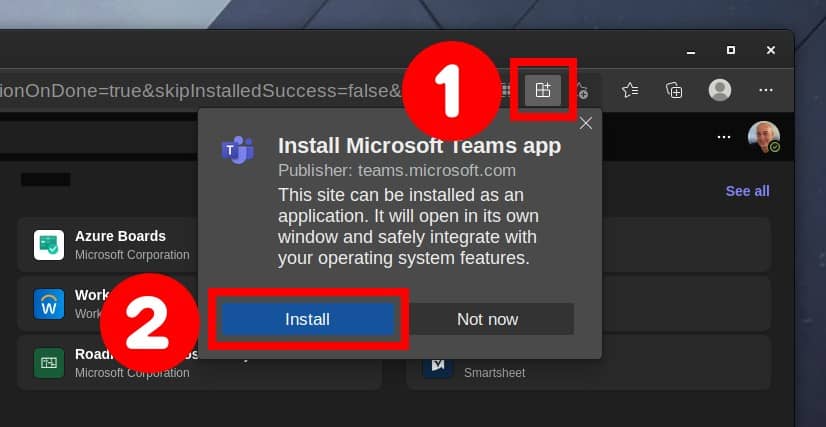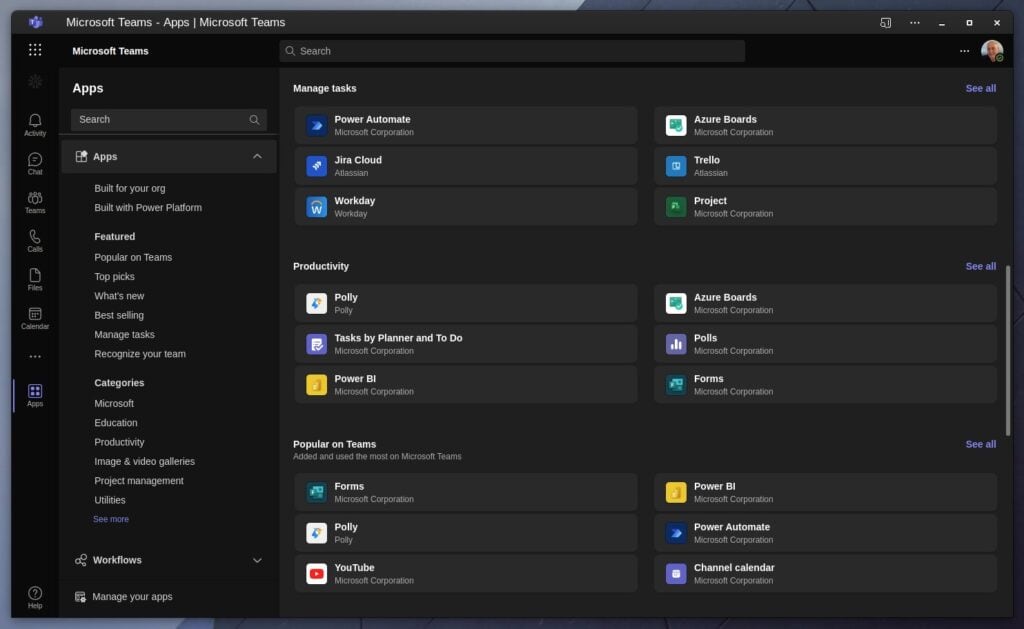Microsoft Teams is a proprietary collaboration and communication business platform that offers calendar functionality, chat, video and audio conferencing calls, and file and app sharing – all in one place in real-time.
Although many in the Linux community will balk at using software solutions that aren’t open-source, the app’s availability for Linux is a game-changer for anyone who wants to use it and must collaborate via Microsoft Teams.
Until now, it was available to Linux users as an Electron-based app. Unfortunately, this had several limitations, including a lack of support for custom background effects for video calls and meetings and performance issues.
As a result, a few months ago, Microsoft decided to retire the existing Teams Linux desktop client in December 2022 and focus on replacing it with a new lightweight PWA-based (Progressive Web App) one. And now, this is already a fact.
Microsoft Teams PWA Is Now Available on Linux
For those unfamiliar, a Progressive Web App (PWA) is a website that looks and behaves like a mobile or desktop app. With a PWA, a user can install and interact with a web application, much like a native app.
A few days ago, Microsoft announced that the Teams application is now available as a PWA for all Linux users.

MS Teams’ PWA version offers some long-awaited Linux features such as custom backgrounds, gallery view, reactions, the raise-a-hand feature in meetings, and large gallery and Together mode views.
Furthermore, it also includes desktop-like app features such as chat and channel system notifications, a dock icon with relevant controls, application auto-start, and easy access to system app permissions.
Teams PWA is an evolution of our Linux web experience – it offers the “best of the web with key functionalities of the client”: zero-install, lightweight, and has a rich set of features.
How to Use Microsoft Teams PWA on Linux
The most frequently asked question among Linux users of Microsoft Teams is how to use it as a PWA app. The answer is that it is pretty simple, as no special technical skills are necessary. All you need is a web browser.
According to Microsoft, the Teams PWA experience is supported on Linux via Google Chrome or Microsoft Edge browsers.
So, if you don’t already have the Edge Browser installed on your Linux system, our “How to Install Microsoft Edge on Linux in a Few Easy Steps” will help you do so. About Google Chrome, Ubuntu users can take a look here.
Then, in your browser, navigate to https://teams.microsoft.com and enjoy the full Linux functionality provided by the Microsoft Teams PWA application.
But wait, there’s more. Finally, we’ve come to the most exciting part. Using an app in the web browser is not always handy because it must always run.
However, the PWA apps, particularly Microsoft Teams, can be installed locally as completely standalone native apps. And best of all, it simply takes two mouse clicks.

Then, search for “teams” in your application launcher and run it as a standard desktop application.


Finally, we’d like to remind you that the support for Teams as an Electron-based app will end next month. In this regard, Microsoft encourages Teams Linux users to switch to the PWA’s version to gain access to its most recent features and a desktop-like experience.

You can use this extension to enable PWA in Firefox since Site Specific Browser is no longer available:
– https://addons.mozilla.org/en-US/firefox/addon/pwas-for-firefox/
Interesting that it seems to work with Firefox also although the instructions say that you have to use Edge …
Hi Klaus,
Yes, MS Teams works as a PWA app in Firefox, but it cannot be installed as a local app (or at least I couldn’t find such an option) as it can in Chrome and Edge.
Best,
Bobby